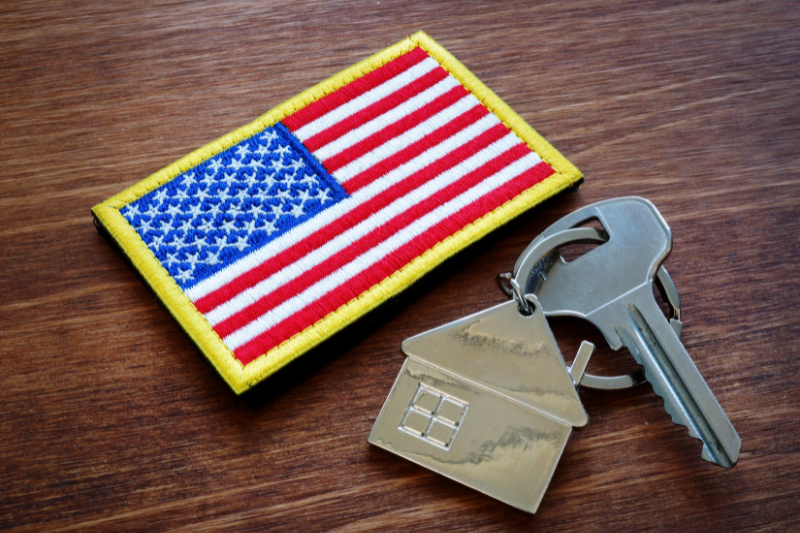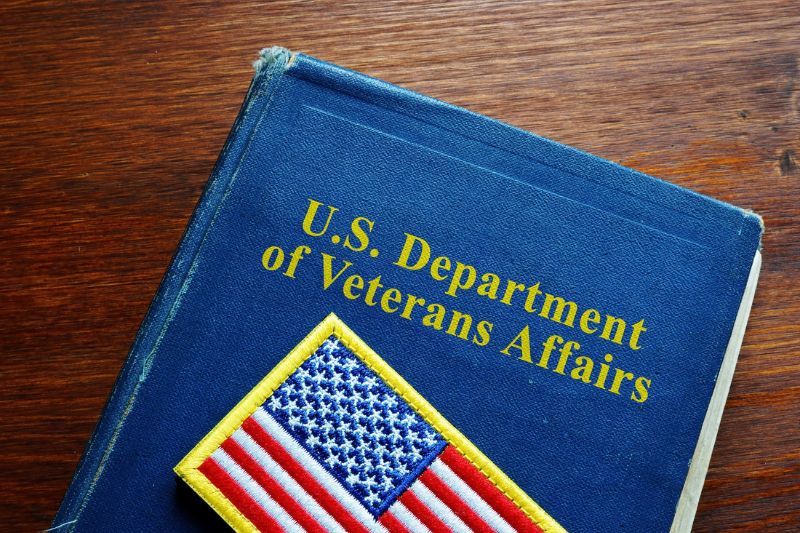Understanding VA Loan Eligibility for Multiple Uses Many homeowners who have utilized a VA loan…
Understanding VA Mortgages and Rental Property Implications

VA Mortgages and Rental Property Implications
VA loans are a valuable benefit designed to help veterans and active-duty military personnel finance their primary residences. However, the rules surrounding VA loans and rental properties can be a bit complex, especially when considering deployments, relocations, or retirement. This blog post aims to clarify these rules and provide guidance on how to manage your VA-financed home when your living situation changes.
VA Loans: Primary Residence Focus
VA loans primarily aim to help veterans and active-duty military members purchase homes they intend to live in full-time. VA loans offer several attractive benefits, including competitive mortgage rates, no down payment requirement, and no ongoing mortgage insurance premiums. These benefits make home-buying more accessible, but they come with the stipulation that the borrower must certify they will use the home as their primary residence.
However, this doesn’t limit you to just a single-family home. You can purchase a duplex, quadplax, or even two duplexes on the same property, as long as you live in one of the units.
What VA Loans Cannot Do
VA loans are not intended for purchasing investment properties, second homes, or vacation homes. Conventional loans, not backed by government agencies, are available for these purposes. The primary residence requirement applies only to the new home you are buying with a VA loan. It does not necessarily apply to a home you already own that was financed with a VA loan.
Moving, Deployment, and Retirement: What to Do with Your VA Home
When facing deployment, relocation, or retirement, you don’t have to sell your VA-financed home. You can keep it and buy another home elsewhere using another VA loan, provided you follow certain rules. You may even rent out your current home to help finance your new home.
Key Considerations:
- Remaining Entitlement: You need enough remaining entitlement to secure a second VA loan.
- VA Funding Fee: The funding fee may be higher for your second VA loan.
VA Home Loan Occupancy Rules
When using a VA loan to buy a new home, you must adhere to the occupancy requirements:
- Move-In Timeline: You agree to move into the home within 60 days of closing.
- Duration: You typically need to live in the home for at least 12 months.
The VA may grant exceptions if you need more time to move in due to deployment or other circumstances.
Occupancy Requirement Exceptions:
- Retirement: If you’re buying a home in anticipation of retirement.
- Home Repairs: If the home needs significant repairs before you can move in.
- Work Travel: If your job requires you to be away from home.
- Spouse Occupancy: If your spouse will live in the home while you’re deployed.
- Other Circumstances: Various other unique situations may qualify for exceptions.
Renting Your VA-Financed Home
You can rent out your VA-financed home under certain conditions. For example, if you’ve lived in the home as your primary residence for at least a year, you can rent it out and use another VA loan to buy a new home elsewhere. You may request an exception from the VA if you haven’t met the one-year occupancy requirement.
VA Refinance and Rental Rules:
- Cash-Out Refinance: Requires another year of occupancy.
- IRRRL (Streamline Refinance): No occupancy requirement; you can refinance while renting out the home.
Things to Know About Renting Out Your VA Home
- Refinancing is Optional: You don’t need to refinance to rent out your home. Refinancing should be considered only if it provides a financial benefit.
- Entitlement Impact: Renting out your home may affect your entitlement for subsequent VA loans.
- Restoring Entitlement: You can restore full entitlement by paying off your VA loan.
- Insurance Adjustments You may need a new insurance policy tailored for rental properties.
- Rental Income Documentation: Rental income can be complex to document for mortgage qualification purposes.
Using Rental Income to Buy Another Home
If you plan to use rental income from your current home to qualify for a second VA loan, be aware of the lender’s debt-to-income (DTI) requirements. Typically, lenders require at least two years of documented rental income, but rental income can be used as a compensating factor to help with qualification.
Navigating VA loans and rental properties involves understanding and adhering to specific rules and exceptions. At Certified Home Loans, we specialize in guiding veterans and active-duty service members through this process, ensuring you make the most of your VA benefits. Contact us to explore how we can assist you with your VA mortgage needs, whether it’s for a new purchase, refinance, or understanding the implications of renting out your VA-financed home.




